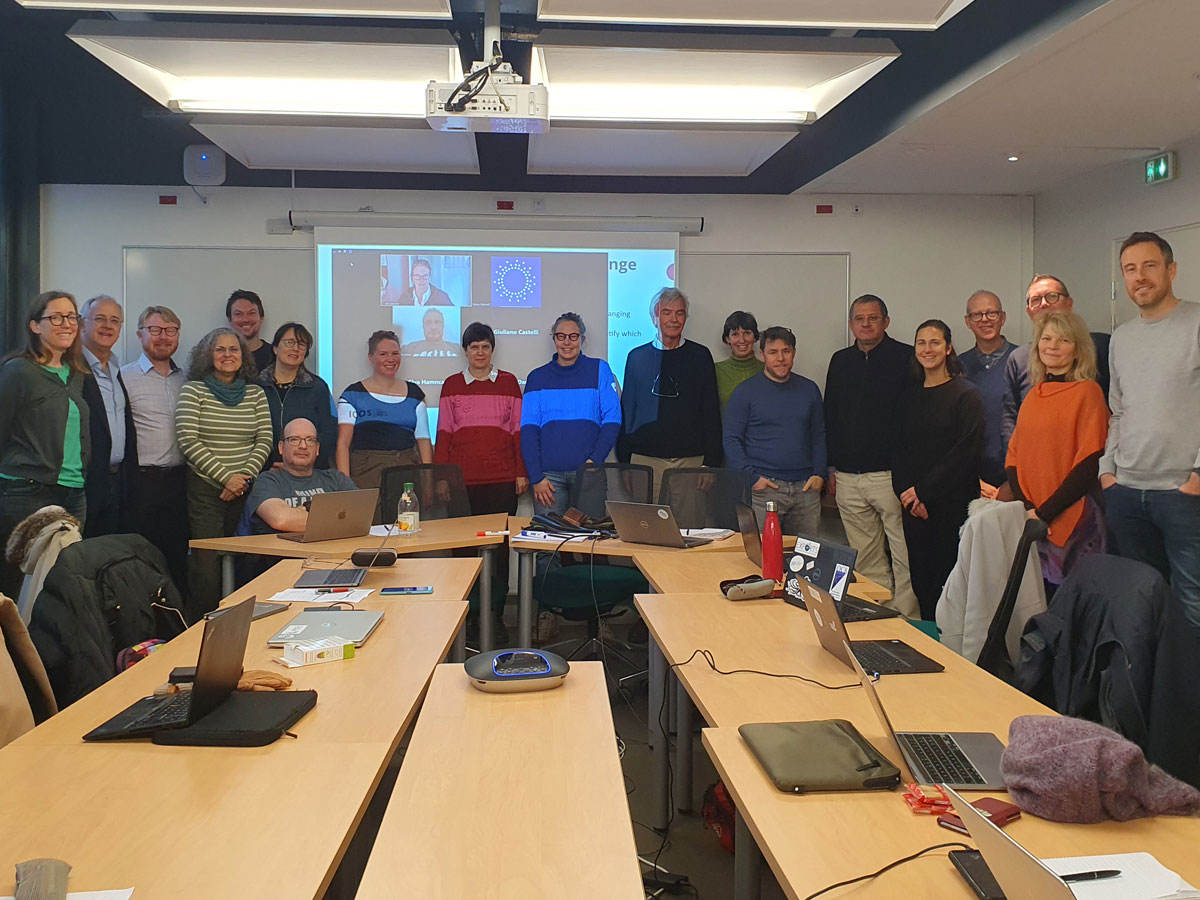As part of the latest ICOS Ocean Monitoring Station Assembly, a QuinCe workshop took place in Paris in December 2022. The workshop gathered 35 participants to receive training on QuinCe quality control software and discuss the calculation of seawater partial pressure of CO2 value in the software.

Delivering reliable near-real-time data from observation stations has become crucial in fighting climate change. To improve data availability from ocean stations, the ICOS Ocean Thematic Center created QuinCe, an open-source online processing and quality control tool helping researchers quickly detect anomalies in datasets. Part of the ICOS data processing flow for ocean stations, QuinCe centralises and automates routine checks on raw data uploaded by Principal Investigators, reducing data handling by researchers and the risk of human error. QuinCe can read any data text format directly from measuring instruments and apply individual sensor calibration. It uses community-approved algorithms to control submitted datasets, looking for anomalies such as GPS errors, values outside ranges, sudden peaks or drops, and date or time issues. Although ICOS researchers follow rigorous protocols, the collected raw data is not exempted from possible irregularities: an instrument can fail or drift outside of its measuring perimeter and gather flawed data.
"Attending the MSA workshop and meeting the other ICOS PIs was really beneficial in terms of running our (SOOP) station in the future. We believe QuinCe will save us from a painstaking, time-consuming process," says Margot Cronin, a Principal Investigator from Ireland attending the Paris workshop. "The software will detect any aberration automatically, so we can just focus on investigating the data and any trends or irregularities." Upon completing its automated tasks, QuinCe will display a comprehensive plotted report with contextual metadata to help the PI assess the flagged abnormalities manually. "Getting this kind of hands-on training on QuinCe is utterly important for Principal Investigators," continues Margot Cronin. "We can acquire new skills, reinforce our capacity to interpret flagged values, and contribute to making the ICOS ocean data processing more efficient."
But the role of QuinCe is not limited to quality control. As the unique, centralised data treatment platform for the ICOS ocean stations, the software ensures that all researchers use the same standardised protocols to assess the collected data and records the implemented corrections for complete traceability and FAIRness. "During the Paris workshop, we debated the implementation of the seawater partial pressure of CO2 (pCO2) value into the software," describes Tobias Steinhoff, Senior Engineer for ocean observations at Norce and one of the workshop organisers. "Because pCO2 can't be directly measured, we discussed with the ICOS ocean community during the workshop and agreed on the best way to calculate this value and implement it in QuinCe, further streamlining our data process."
QuiCe also contributes to speeding up data transmission. Adjusted datasets are automatically converted and transmitted to central archives such as the ICOS Carbon Portal or SOCAT, drastically reducing the time between the collection of the data and its publication. "QuinCe is accelerating data availability," explains Steve Jones, Research Software Engineer at the University of Bergen and one of the software creators. "It creates an automatic data flow from a collection point to publication within minutes. That's a big step towards making near-real-time data available to the scientific community."
Recent add features to QuinCe include added support for data from Pro Oceanus CO2 sensors, streamlined publication of processed data to the ICOS Carbon Portal and other data products (e.g. the Surface Ocean CO2 Atlas, aka SOCAT), added the ability to interpolate over small data gaps to recover data during brief sensor dropouts, and ongoing improvements to automatic QC routines to reduce work required by station owners.
QuinCe will benefit from upcoming features such as support for 4-H Jena CONTROS and Sunburst SAMI CO2 sensors, added support for new types of biogeochemical data, automated quality control using knowledge of the diagnostic sensors installed in systems, and improved data processing speed.
QuinCe is accessible at https://quince.bcdc.no
Further information and support for QuinCe is available by contacting Steve Jones (steve.jones@uib.no)
Read the original QuinCe poster https://otc.icos-cp.eu/sites/default/files/2020-02/QuinCe.pdf